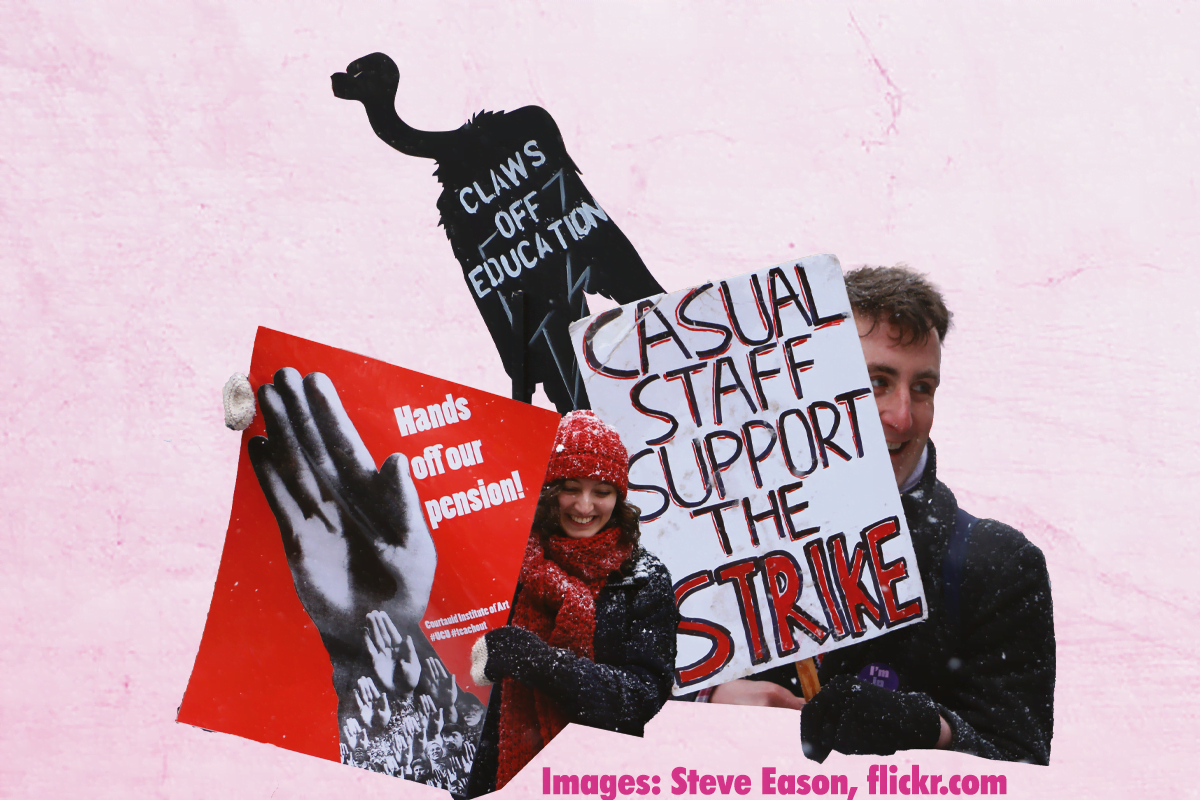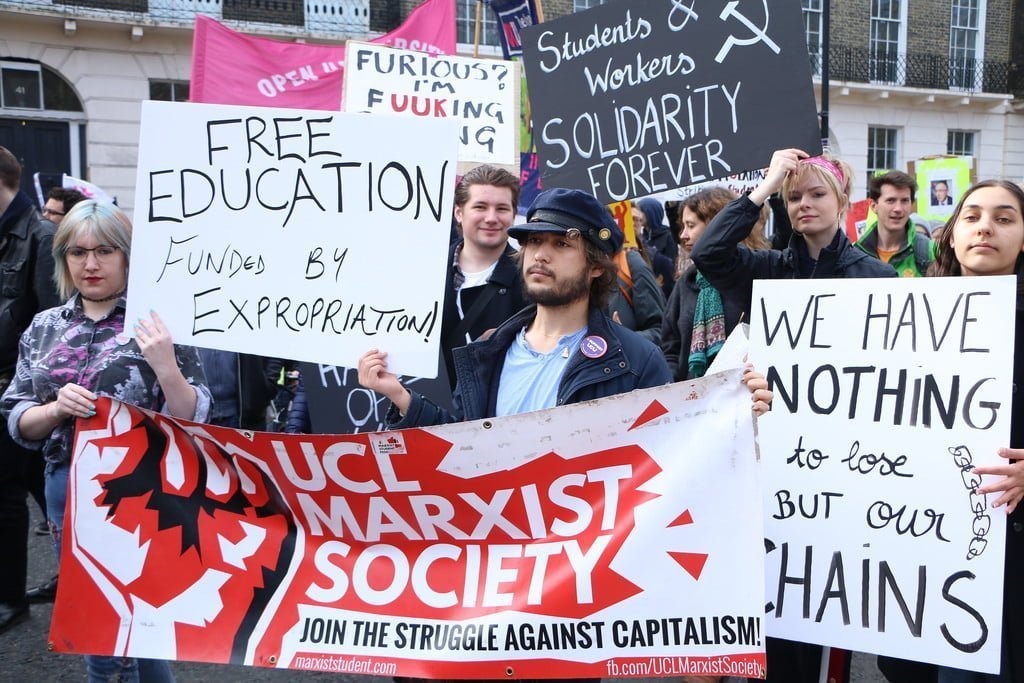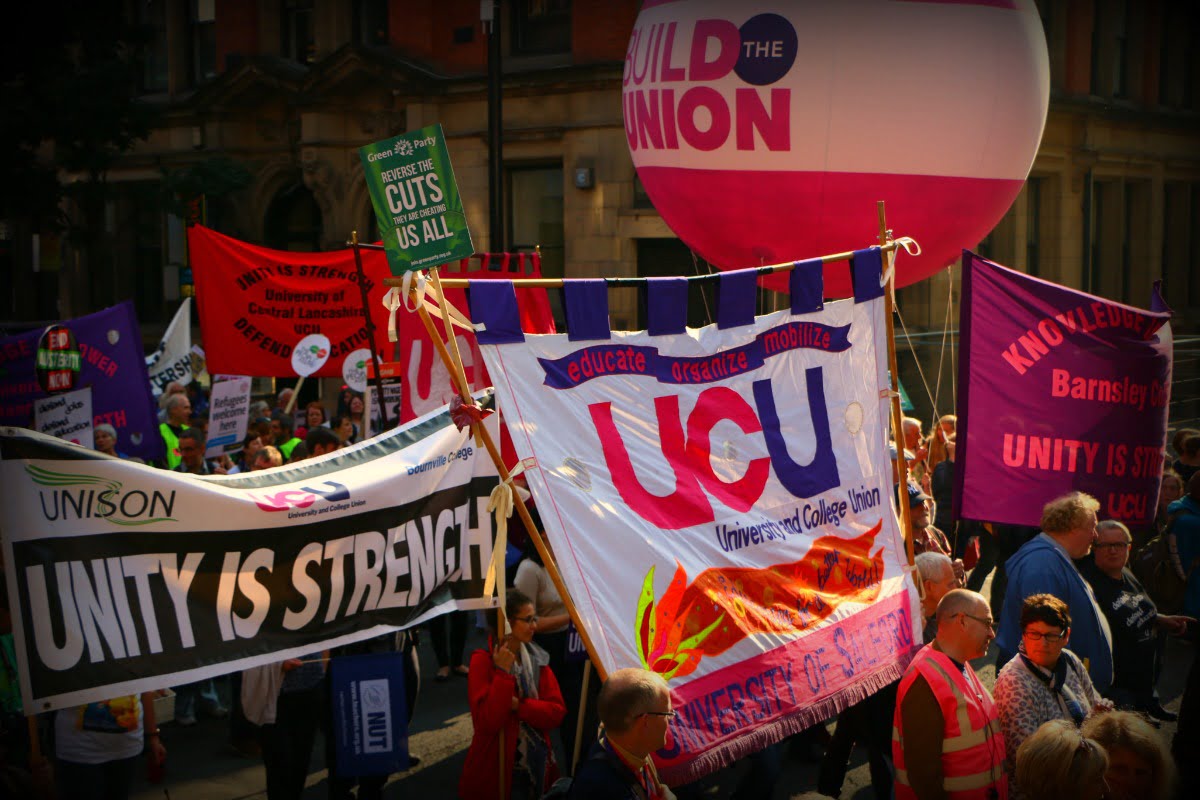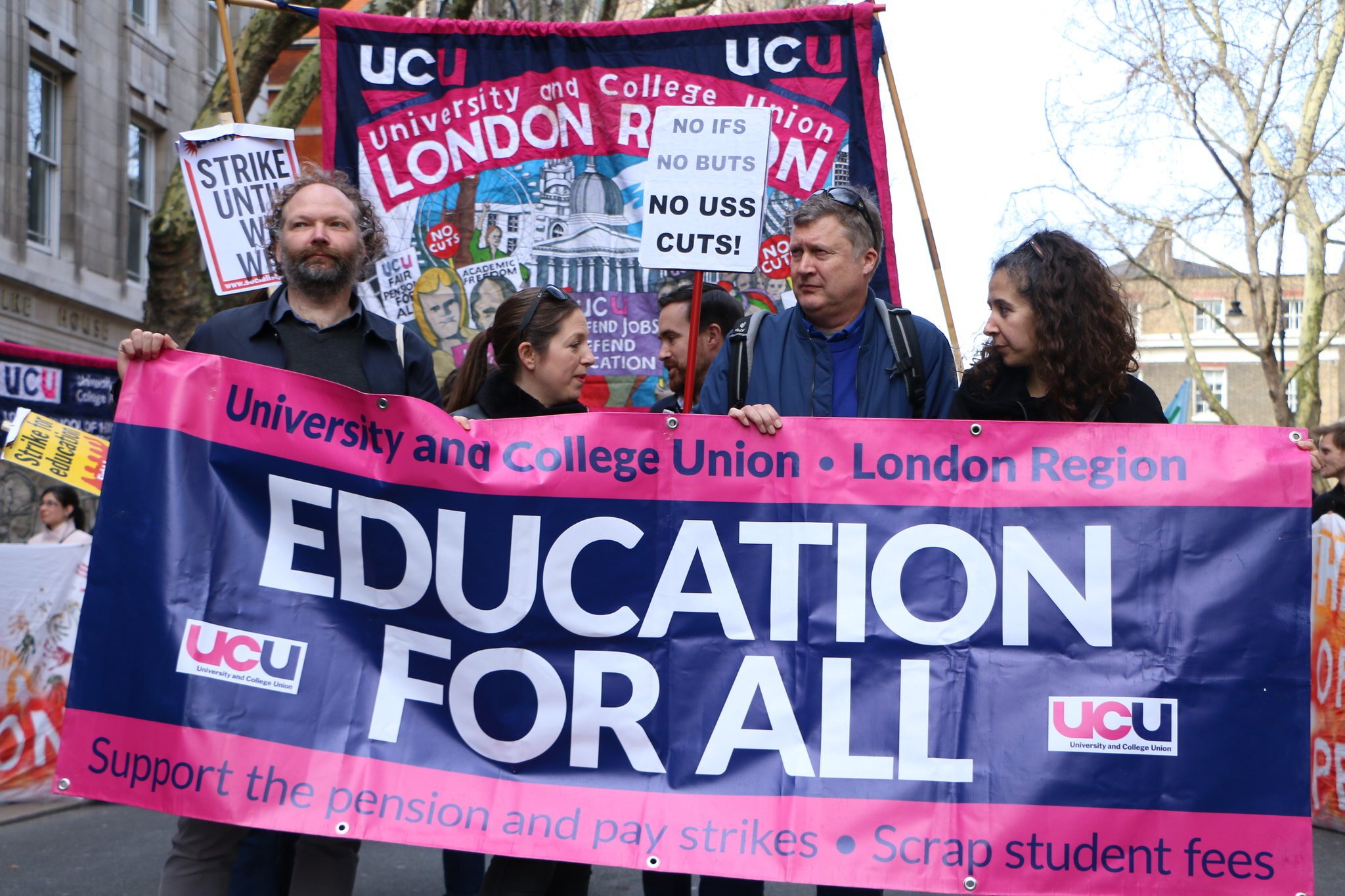A recent struggle at Queen Margaret University (QMU) in Edinburgh has ended with a win for the local UCU branch.
In May, following the launch of the union’s national marking and assessment boycott (MAB), the university’s bosses threatened 100% pay deduction for those QMU staff participating, as they have done at at least 27 other institutions.
In response, the QMU UCU branch mobilised its forces and threatened 18 days of strike action. After just one day out, the bosses were forced to back down.
This provides an important lesson for the whole union in the struggle it is currently waging on campuses across the country.
🚨WE DID IT!
🥳100% MAB DEDUCTIONS REVERSED AT QMU!
Senior Management have backed down & we’ve called off our strike action.
This is a huge victory for our wee branch, & a successful de-escalation of a local dispute.
✊FRIENDS & COMRADES, IT CAN BE DONE!#ucuRISING— UCU 👑Queen Margaret Uni, Edinburgh (@ucuqmu) May 12, 2023
Bitterness

The struggle at QMU is particularly bitter. As with all universities, it has been suffering from reduced government funding.
On top of this already dire situation, however, QMU is in debt to Barclays Bank by around £24 million. Repayments on these loans come to £1.5m a year, plus an extra £1m in interest.
Staff at QMU, as everywhere, are putting in extra hours and effort for less money. As with the rest of the sector, inequalities and discrimination are worsening; casualisation is rampant; and education as a whole is suffering.
These are the issues behind the UCU’s ‘Four Fights’ campaign against underpay, overwork, casualisation, and inequalities.
Boycott
As part of this dispute, the union has now embarked on a national MAB.
Marking is an essential part of a lecturer’s work. At this time of year, universities rely on academic staff to work evenings and weekends, in order to mark exams and coursework.
This boycott is therefore a serious threat to the functioning, reputation, and income of all universities. As a result, the bosses have come particularly down hard on it – or have tried too, at least.
We were told that management would deduct 100% of pay for anyone participating in the MAB, despite the fact that marking responsibilities constitute far less than 100% of UCU members’ work. This attack essentially means that lecturers would be working for free.
In the past, the bosses have often used a softer approach, so as not to provoke union members. But in the last year, unions everywhere have become more powerful and confident.
And in the case of our union, UCU, workers are determined to continue fighting, even in the case of long disputes such as the ‘Four Fights’.
As a result, the bosses have become worried. And this is why they are taking this tougher, more belligerent stance.
Response
Our UCU branch responded by launching an intense campaign, beginning by organising 18 days of strike action: hard-hitting, extended action – not just a few days here and there.
We also made media appearances; ran a social media campaign; raised over £2k in fighting funds; had a demonstration when the Holyrood higher education secretary was visiting; and had members writing to politicians and alumni, and tweeting at them.
Behind us we also had the support of a newly-established Staff Student Solidarity Network, who ran their own social media campaign, supported our demos and pickets, and set up a petition.
These students have been awesome. Sticking their heads above the parapet. Challenging uni bosses (who have power of whether they graduate and in some cases their visa status) and helped us win this. Would encourage all Qmu students to join the SSSN https://t.co/VAji7oMdgi
— Ross walker (@Rosswalker152) May 13, 2023
Before the strike had even begun, we were offered 0% deductions but with strings attached.
This included having to sign a public statement gushing with praise for local advances on working conditions; agreeing to proposals that would undermine our action; and adding a clause that management could reverse their decision.
Regardless, we pressed ahead with the strike. And after just one day of action we entered back into negotiations. These resulted in members being offered most of what we wanted.
Now, if they do reverse the decision, management has to give 15 days notice – i.e. enough time to legally call another strike.
Militancy
This marks an important victory. While we won this battle, however, it was a defensive struggle: one to prevent the bosses from attacking us in a far more brutal manner than usual.

Nationally, we’re still yet to win the ‘Four Fights’ campaign. In the process of winning the dispute locally, however, the branch has been strengthened. Activists have been emboldened; members have seen what we can do; and the branch will likely grow as a result.
But there is nothing particularly special about QMU. Such a win could be achieved at universities everywhere, if a united lead was actually given by our union’s leadership.
This would mean, for one, not just resting on the MAB, as disruptive as it is, but to combine different methods of struggle – including hard-hitting, indefinite strike action.
Above all, this episode should be a reminder that the greatest strength we have as workers is our unity, and the fact that we are the ones who keep society and services running. When we withdraw our labour, everything grinds to a halt.
Strike action will always remain one of our strongest weapons, and should therefore be the backbone to any boycott or other similar campaign.
We have many big battles ahead of us, and we’re now that bit more prepared. The experience at QMU will hopefully inspire UCU branches everywhere to consider what kind of militancy and bold leadership we need to win.






